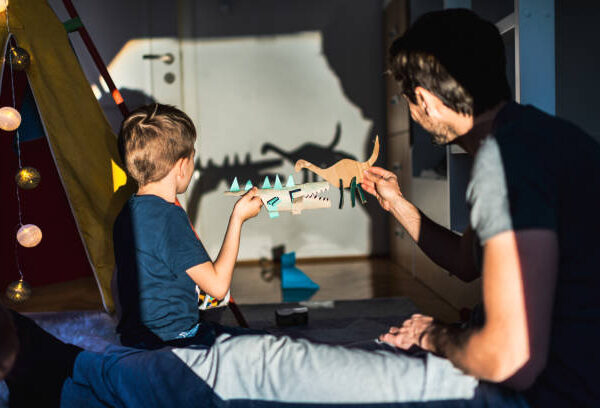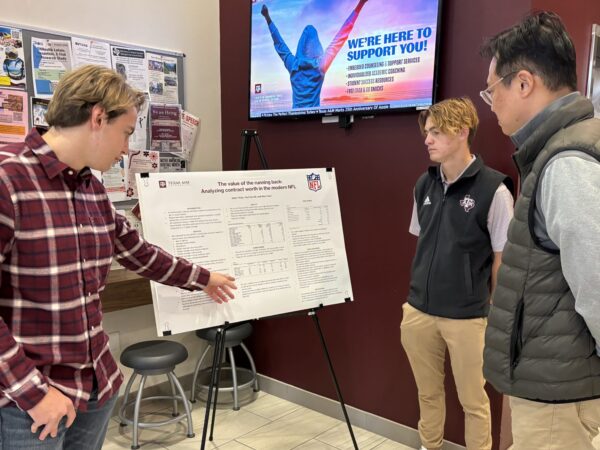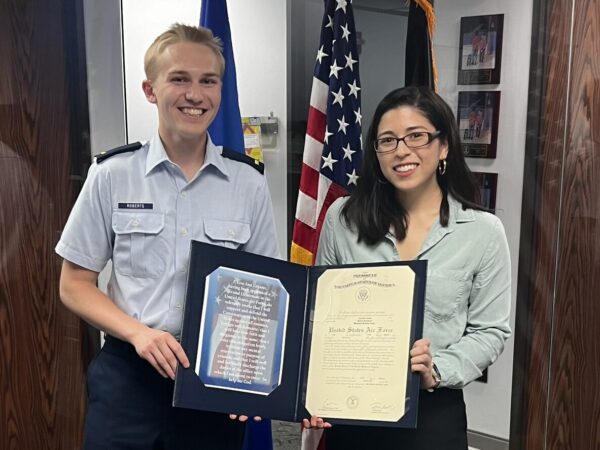Putting Social Skills to Work
For the first three years of his life, Brady could not speak. He was diagnosed with developmental delay and autism spectrum disorder. This placed him in special education classes throughout his entire K-12 education.
For young adults like Brady across the United States it can be difficult to find and keep a job. Dr. Carly Gilson believes that with a little coaching, these individuals can find employment and even flourish. This is the driving vision behind her upcoming Job Coaching Academy.
According to the U.S. Department of Labor, only 20% of working-age adults with a cognitive disability are employed. Research points to many explanations for this.
Dr. Gilson, assistant professor of special education, knows job training and coaching can play an important role helping these adults find and keep employment.
She got the idea from her work as a graduate student where she also served as a job coach for Brady.
“Brady was one of those students who could easily master the technical side of employment and academic skills. But, the unpredictable nature of social skills seemed daunting,” Gilson said.
Based on her knowledge that social skill scan help with career success, Dr. Gilson adjusted her coaching style. In addition to giving him prompts related to the task at hand, she would add things like asking his coworkers about their weekend or redirecting him to ask his supervisor questions.
Within a few weeks, he was able to handle tough social situations on his
own.
Through the development of the Job Coaching Academy, Dr. Gilson hopes to reach the thousands of paraprofessionals and teachers who serve as job coaches in the United States. Many of these individuals work in school-based employment preparation programs for students with intellectual and developmental disabilities.
They provide support intended to strengthen vocational skills in school or
community-based work settings often through high school transition programs. Workers in these positions need no specialized degree and receive minimal training about how to coach effectively.
“There are a lot of things we can’t control, like settings and opportunities. But, we can control the training that we give to our students and the training that our instructors receive to do that.”
While high school transition programs focus on preparing individuals with disabilities for the workforce, they often emphasize vocational skills. They do this through opportunities such as work-based learning and job shadowing. Social skills are often left out of the training. This creates a problem since many employers expect their employees to have job-ready
social skills.
“Social skills are relevant and transferable across settings and tasks. They include things like saying ‘hi’ to a customer, asking a supervisor for help or working with others.”
Research shows that failure to meet the social expectations of employers is the main reason adults with disabilities often lose their jobs.
“There is this tendency of many people to step in. They want it to be done quicker and easier, rather than letting that student experience the unpredictable dynamic that is social interactions.”
Beginning in August 2018, and over the course of six months, job coaches in Dr. Gilson’s academy will receive hands-on training related to employment-related social skills and independence.
“While rooted in the field of special education, the impact spans far beyond the scope of the classroom or even the workplace setting. This project can offer an unprecedented opportunity for job coaches. It can expand the short- and long-term social and employment outcomes of their students.”
Results from the pilot study in the fall will be used to design larger studies. This is in response to continuous calls from federal funding agencies. The Institute of Education Sciences requests applications each year from programs that have been documented as effective in improving transition outcomes for secondary students with disabilities. Dr. Gilson hopes this pilot program will allow future studies lasting several years.
“The next time you see someone with a disability, whether in the workplace, at church or out in the community, simply have a conversation with them. Social interactions are two-way streets and we all benefit from a meaningful, respectful dialogue. Together we can build a more inclusive community for everyone.”
About the Writer
Ashley is the Media Relations Coordinator and responsible for news coverage in the Department of Teaching, Learning and Culture as well as the Department of Educational Psychology.
Articles by AshleyFor media inquiries, contact Ashley Green.
Fundraising
To learn more about how you can assist in fundraising, contact Amy Hurley, Director of Development ahurley@txamfoundation.com or 979-847-9455












